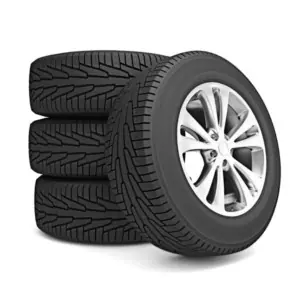These winter and all-season tire comparisons will help you determine which is best for your needs.
All-Season Tire Benefits
1. Increased Efficiency
Improving performance in terms of going from point A to point B fast is where it all begins. Your tires will be lighter, allowing the car’s attributes to stand out more.
2. Increased Fuel Efficiency
Fuel savings are always advantageous, given the current rise in fuel prices. Therefore it is why using winter tires during the summer is not recommended.
When no snow is present, many people choose all-season tires because the wrong type causes the fuel efficiency to rise.
3. Suitable for Various Road Conditions
Both dry and wet roads can be travelled on with all-season tires. As a result, they are far more adaptable because their performance is reliable and effective under various circumstances.
If you like to be more ‘hands-on’ with your vehicle, please browse our extensive library of manuals for your make and model: Repair Manuals.

Vorteile von Winter Tires
1. Good Grip on Ice and Snow
The grip you obtain while driving on snow or ice is one of the key benefits. Even at a respectable speed, you won’t swerve around.
Other tires can’t say the same because they lose traction on slick surfaces.
2. Outstanding Tread Depth
It matters what tread depth you acquire, along with the patterns and cutting edges. You can make quick manoeuvres with confidence that the tread depth will keep the tire’s hold on the pavement.
3. Adaptable in Cold Weather
Rubber may begin to lock up when the temperature drops. Be aware that if the temperature decreases to the point where it fully locks up. Winter tires are helpful in cold weather because of this.










